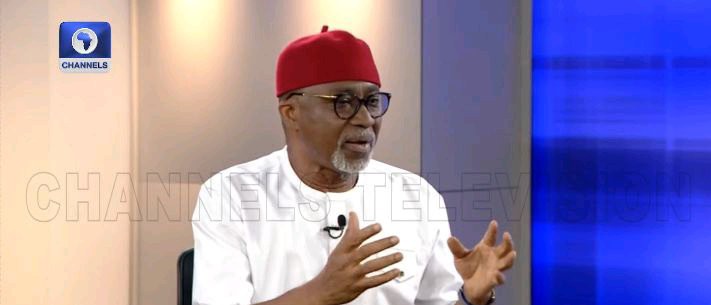The Nigerian Bureau of Statistics (NBS) has announced a Gross Domestic Product (GDP) growth of 3.46% for the third quarter of 2024. While this figure might seem like a positive economic indicator, Senator Enyinnaya Abaribe, representing Abia North, has expressed skepticism about its relevance to the everyday Nigerian.
In an interview on Politics Today, a Channels Television program from 12:00, Senator Abaribe dismissed the GDP growth as “meaningless” to the average citizen struggling with mounting challenges.
“It means nothing to me because who feels it knows it,” he said. “The man on the street, does he see that there’s something called growth? All that he sees is a continual rise in the cost of living. All that he sees is a bleak future. All that he sees is he doesn’t have power, transport. Everything that the common person sees is just difficulty upon difficulty. So when you tell him there’s a rise in this and that, it has to be translated into something that he can actually feel or see and therefore means absolutely nothing to the man on the street.”
Senator Abaribe’s remarks underscore a growing disconnect between macroeconomic data and the lived experiences of many Nigerians. Despite the reported growth, citizens continue to face soaring inflation, unstable electricity supply, rising transport costs, and diminishing purchasing power.
Economic analysts argue that while GDP growth reflects the overall performance of the economy, its impact on individual livelihoods depends on policies that translate this growth into tangible benefits, such as job creation, improved public services, and lower living costs.
The NBS report comes amidst concerns over the sustainability of Nigeria’s economic recovery, with external factors like global oil prices and domestic challenges, including insecurity and policy inconsistencies, adding pressure.

